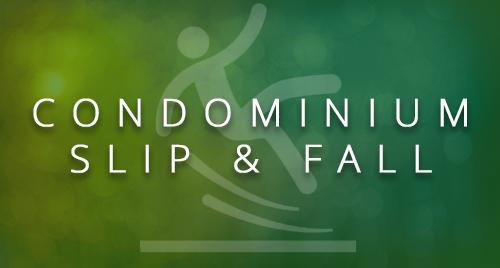
- posted: Aug. 24, 2022
- BRM Attorneys, Personal Injury, Insurance Defense, Troy Michigan Defense Firm, Premises Liability Attorneys, Personal Injury Defense Attorneys, Legal Update, Condominium Owners, Possession and Control, Duty in MichiganPremises Liability Cases
Do condominium associations owe their co-owners a duty?
The Michigan Supreme Court may determine whether condominium associations owe a duty to co-owners
Substantive changes are likely on the horizon in premises liability case law concerning the duty owed by condominium associations to condominium owners. Presently, a condominium owner, as both condominium association member and co-owner of the common areas, does not have an actionable claim in premises liability against the association. Due to their ownership interest, condo owners are not considered licensees or invitees. As a result, a condominium association owes no duty in premises liability to co-owners. This precedent was established in Francescutti v Fox Chase Condo Ass’n, 312 Mich App 640 (2015) – successfully briefed and argued in the Michigan Court of Appeals by one of BRM's own - Mary Rourke Benedetto.
Janini v London Townhouses Condo Ass’n
 The ruling in Francescutti is now being challenged in the Michigan Supreme Court by Janini v London Townhouses Condo Ass’n, 975 NW2d (500) (2022). In Janini the plaintiff condominium owner slipped and fell on a sidewalk within the condominium complex’s common areas that were maintained by the condominium association. The Court of Appeals reversed the trial court’s denial of summary disposition as to the premises liability claims because it found no question of fact as to the dispositive issue of duty. Plaintiff admitted to owning a condominium within the complex and to being a member of the condominium association. He therefore held an ownership interest in the common area on which he fell. Accordingly, he was precluded from bringing a premises liability claim against the association because he could not prove the association owed him a duty.
The ruling in Francescutti is now being challenged in the Michigan Supreme Court by Janini v London Townhouses Condo Ass’n, 975 NW2d (500) (2022). In Janini the plaintiff condominium owner slipped and fell on a sidewalk within the condominium complex’s common areas that were maintained by the condominium association. The Court of Appeals reversed the trial court’s denial of summary disposition as to the premises liability claims because it found no question of fact as to the dispositive issue of duty. Plaintiff admitted to owning a condominium within the complex and to being a member of the condominium association. He therefore held an ownership interest in the common area on which he fell. Accordingly, he was precluded from bringing a premises liability claim against the association because he could not prove the association owed him a duty.
The Michigan Supreme Court has ordered limited oral argument and supplemental briefing on the Application for Leave to Appeal pertinent to a single issue: whether the owner of a condominium unit is a licensee or an invitee, and whether a duty is owed to the owner by the condominium association.
Analysis of Possession and Control of the Common Areas
If the application is granted, the Supreme Court may consider whether Francescutti is consistent with Michigan’s longstanding negligence and premises liability framework. The determination will also likely involve an analysis regarding the extent to which condominium owners possess and control the common areas. Michigan Courts have previously defined “possession” as the right under which one may exercise control over something to the exclusion of all others; “control” means exercising restraint or direction over; domination or regulating. The Court may ultimately consider whether limits placed by the association on an owner’s right of control over the common areas creates a duty to the owner.
We will continue monitoring Janini and other pending premises liability cases and will provide further analysis to our clients on the impact of the Supreme Court’s decisions on the rights of condominium associations and co-owners. Depending upon the outcome in Janini we may see a rise in slip and fall filings against condominium associations – until then, Francescutti is still good law and condominium associations are not liable in premises liability to condominium owners for injuries sustained in a common area.
 At Bowen, Radabaugh & Milton, P.C., we offer a wide range of legal services to insurance carriers, and have the experience and knowledge necessary to advise on personal injury claims, including premises liability issues. For more information about the potential changes to premises liability law and condominium protections, call or email Marc Bowen.
At Bowen, Radabaugh & Milton, P.C., we offer a wide range of legal services to insurance carriers, and have the experience and knowledge necessary to advise on personal injury claims, including premises liability issues. For more information about the potential changes to premises liability law and condominium protections, call or email Marc Bowen.


